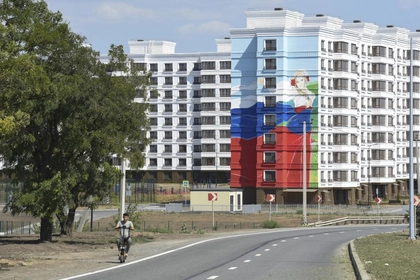As Ukraine braces itself for a tough summer along its front lines, Kyiv has to navigate a delicate diplomatic landscape balancing Western unity with a push for peace talks on its own terms.
Between now and autumn, Ukraine is expected to battle to contain Russian advances along a more than 1,000-kilometer-long front line. It is hoped weapons and ammunition recently supplied by Western countries will help hold back Russian forces.
JOIN US ON TELEGRAM
Follow our coverage of the war on the @Kyivpost_official.
US officials say Russia is unlikely to make significant territorial gains in the coming months.
But Kyiv’s increasingly bigger concern next to the situation on the battlefield, is of a political nature.
Ukraine’s President Volodymyr Zelensky over the past few months has seemingly been everywhere. He joined Western partners at every summit opportunity asking those countries present to show leadership, and tried to systematically reach out to countries in the Global South.
Speaking in Blenheim Palace in the UK at the last summit of the season, Zelensky said Russia’s President Vladimir Putin might attempt to pick off individual leaders to “tempt” or “blackmail” them into betraying the rest of its partners and weaken Western unity over support for Ukraine.
“If someone in Europe tries to resolve issues behind others’ backs or even at the expense of someone else, if someone wants to make shady trips to the capital of war – to talk and perhaps promise something against our common interests or at the expense of Ukraine or other countries, then why should we consider such a person?”

Ukrainian Naivety is Both Good and Bad
Hungary’s Prime Minister Viktor Orban, for many EU diplomats, has indeed been playing into Putin’s hands by visiting Moscow and insisting a peace deal must be made to end the war in Ukraine.
But his pitch for Europe to work with the likely next US president Donald Trump to end the war would, for most European leaders, mean leaving Ukraine alone and Europe at risk of Russia’s future ambitions.
There seems to be an increasing sense that the war, as things stand, is unlikely to end in total victory for either Moscow or Kyiv.
As Russia’s war reaches the two-and-a-half-year mark, Kyiv is pursuing a plan for a negotiated end on its terms.
For the West, this will mean giving Kyiv everything to have the best possible starting position to negotiate one day.
But it is also likely to embolden Moscow to undermine Western unity to the extent that support stops flowing to its benefit on the battlefield.
Two alternative visions for an end have even been presented in recent months.
First, at the Switzerland peace summit, Ukraine pitched its 10-point peace plan to leaders and dignitaries from more than 90 countries- minus Russia.
The second is a ceasefire offer from Russia’s President Vladimir Putin. But for Ukraine, it would resemble a capitulation as it would be conditioned on Kyiv dropping its NATO membership ambitions and withdrawing from the four Eastern Ukrainian territories that Russia unilaterally annexed following its full-scale invasion in 2022.
Switzerland backed Ukraine’s ‘territorial integrity’, but as some countries abstained, Kyiv wants to convene a second meeting in autumn, this time with Russia attending, according to people familiar with the matter.
The urgency to find a fair peace settlement before the US elections in November also comes as many have started to believe that another Trump presidency could put Ukraine at a disadvantage.
Trump and Zelensky has a phone call on the matter on Friday (19 July), the first since the former US president left office in 2020.
Trump said that as president he would “bring peace to the world and end the war that has cost so many lives” and both Russia and Ukraine “will be able to come together and negotiate a deal that ends the violence.”
Zelensky said in a statement he had underlined “the vital bipartisan and bicameral American support for protecting our nation’s freedom and independence.”
Both had agreed “to discuss at a personal meeting what steps can make peace fair and truly lasting,” he added.
Ukraine will find a way to fight Russia’s forces even if Trump wins a second term and jeopardises vital US support, Ukraine’s Defence Minister Rustem Umerov said last week.
“Whatever the outcome” of the US elections, “we will find solutions,” he said.
You can also highlight the text and press Ctrl + Enter






